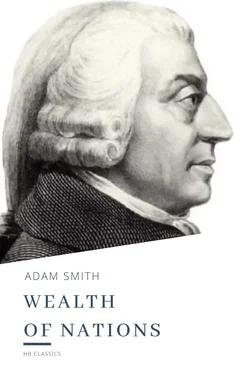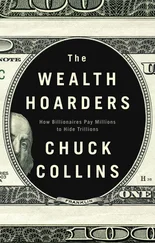Several other very well authenticated, though manuscript, accounts, I have been assured, agree in making this whole annual importation amount at an average to about six millions sterling; sometimes a little more, sometimes a little less.
The annual importation of the precious metals into Cadiz and Lisbon, indeed, is not equal to the whole annual produce of the mines of America. Some part is sent annually by the Acapulco ships to Manilla; some part is employed in the contraband trade which the Spanish colonies carry on with those of other European nations; and some part, no doubt remains in the country. The mines of America, besides, are by no means the only gold and silver mines in the world. They are, however, by far the most abundant. The produce of all the other mines which are known is insignificant, it is acknowledged, in comparison with theirs; and the far greater part of their produce, it is likewise acknowledged, is annually imported into Cadiz and Lisbon. But the consumption of Birmingham alone, at the rate of fifty thousand pounds a year, is equal to the hundred-and-twentieth part of this annual importation at the rate of six millions a year. The whole annual consumption of gold and silver, therefore, in all the different countries of the world where those metals are used, may perhaps be nearly equal to the whole annual produce. The remainder may be no more than sufficient to supply the increasing demand of all thriving countries. It may even have fallen so far short of time demand as somewhat to raise the price of those metals in the European market.
The quantity of brass and iron annually brought from the mine to the market is out of all proportion greater than that of gold and silver. We do not, however, upon this account, imagine that those coarse metals are likely to multiply beyond the demand, or to become gradually cheaper and cheaper. Why should we imagine that the precious metals are likely to do so? The coarse metals, indeed, though harder, are put to much harder uses, and, as they are of less value, less care is employed in their preservation. The precious metals, however, are not necessarily immortal any more than they, but are liable, too, to be lost, wasted, and consumed in a great variety of ways.
The price of all metals, though liable to slow and gradual variations, varies less from year to year than that of almost any other part of the rude produce of land; and the price of the precious metals is even less liable to sudden variations than that of the coarse ones. The durableness of metals is the foundation of this extraordinary steadiness of price. The corn which was brought to market last year will be all or almost all consumed long before the end of this year. But some part of the iron which was brought from the mine two or three hundred years ago may be still in use, and perhaps some part of the gold which was brought from it two or three thousand years ago. The different masses of corn which in different years must supply the consumption of the world will always be nearly in proportion to the respective produce of those different years. But the proportion between the different masses of iron which may be in use in two different years will be very little affected by any accidental difference in the produce of the iron mines of those two years; and the proportion between the masses of gold will be still less affected by any such difference in the produce of the gold mines. Though the produce of the greater part of metallic mines, therefore, varies, perhaps, still more from year to year than that of the greater part of corn fields, those variations have not the same effect upon the price of the one species of commodities as upon that of the other.
VARIATIONS IN THE PROPORTION BETWEEN THE RESPECTIVE VALUES OF GOLD AND SILVER
Before the discovery of the mines of America, the value of fine gold to fine silver was regulated in the different mints of Europe between the proportions of one to ten and one to twelve; that is, an ounce of fine gold was supposed to be worth from ten to twelve ounces of fine silver. About the middle of the last century it came to be regulated, between the proportions of one to fourteen and one to fifteen; that is, an ounce of fine gold came to be supposed to be worth between fourteen and fifteen ounces of fine silver. Gold rose in its nominal value, or in the quantity of silver which was given for it. Both metals sunk in their real value, or in the quantity of labour which they could purchase; but silver sunk more than gold. Though both the gold and silver mines of America exceeded in fertility all those which had ever been known before, the fertility of the silver mines had, it seems, been proportionably still greater than that of the gold ones.
The great quantities of silver carried annually from Europe to India have, in some of the English settlements, gradually reduced the value of that metal in proportion to gold. In the mint of Calcutta an ounce of fine gold is supposed to be worth fifteen ounces of fine silver, in the same manner as in Europe. It is in the mint perhaps rated too high for the value which it bears in the market of Bengal. In China, the proportion of gold to silver still continues as one to ten, or one to twelve. In Japan it is said to be as one to eight.
The proportion between the quantities of gold and silver annually imported into Europe, according to Mr. Meggens's account, is as one to twenty-two nearly; that is, for one ounce of gold there are imported a little more than twenty-two ounces of silver. The great quantity of silver sent annually to the East Indies reduces, he supposes, the quantities of those metals which remain in Europe to the proportion of one to fourteen or fifteen, the proportion of their values. The proportion between their values, he seems to think, must necessarily be the same as that between their quantities, and would therefore be as one to twenty-two, were it not for this greater exportation of silver.
But the ordinary proportion between the respective values of two commodities is not necessarily the same as that between the quantities of them which are commonly in the market. The price of an ox, reckoned at ten guineas, is about threescore times the price of a lamb, reckoned at 3s. 6d. It would be absurd, however, to infer from thence that there are commonly in the market threescore lambs for one ox: and it would be just as absurd to infer, because an ounce of gold will commonly purchase from fourteen to fifteen ounces of silver, that there are commonly in the market only fourteen or fifteen ounces of silver for one ounce of gold.
The quantity of silver commonly in the market, it is probable is much greater in proportion to that of gold than the value of a certain quantity of gold is to that of an equal quantity of silver. The whole quantity of a cheap commodity brought to market is commonly not only greater, but of greater value, than the whole quantity of a dear one. The whole quantity of bread annually brought to market is not only greater, but of greater value than the whole quantity of butcher's meat; the whole quantity of butcher's meat, than the whole quantity of poultry; and the whole quantity of wild fowl. There are so many more purchasers for the cheap than for the dear commodity that not only a greater quantity of it, but a greater value, can commonly be disposed of. The whole quantity, therefore, of the cheap commodity must commonly be greater in proportion to the whole quantity of the dear one than the value of a certain quantity of the dear one is to the value of an equal quantity of the cheap one. When we compare the precious metals with one another, silver is a cheap and gold a dear commodity. We ought naturally to expect, therefore, that there should always be in the market not only a greater quantity, but a greater value of silver than of gold. Let any man who has a little of both compare his own silver with his gold plate, and he will probably find that, not only the quantity, but the value of the former greatly exceeds that of the latter. Many people, besides, have a good deal of silver who have no gold plate, which, even with those who have it, is generally confined to watchcases, snuff-boxes, and such like trinkets, of which the whole amount is seldom of great value. In the British coin, indeed, the value of the gold preponderates greatly, but it is not so in that of all countries. In the coin of some countries the value of the two metals is nearly equal. In the Scotch coin, before the union with England, the gold preponderated very little, though it did somewhat, as it appears by the accounts of the mint. In the coin of many countries the silver preponderates. In France, the largest sums are commonly paid in that metal, and it is there difficult to get more gold than what is necessary to carry about in your pocket. The superior value, however, of the silver plate above that of the gold, which takes place in all countries, will much more than compensate the preponderancy of the gold coin above the silver, which takes place only in some countries.
Читать дальше












